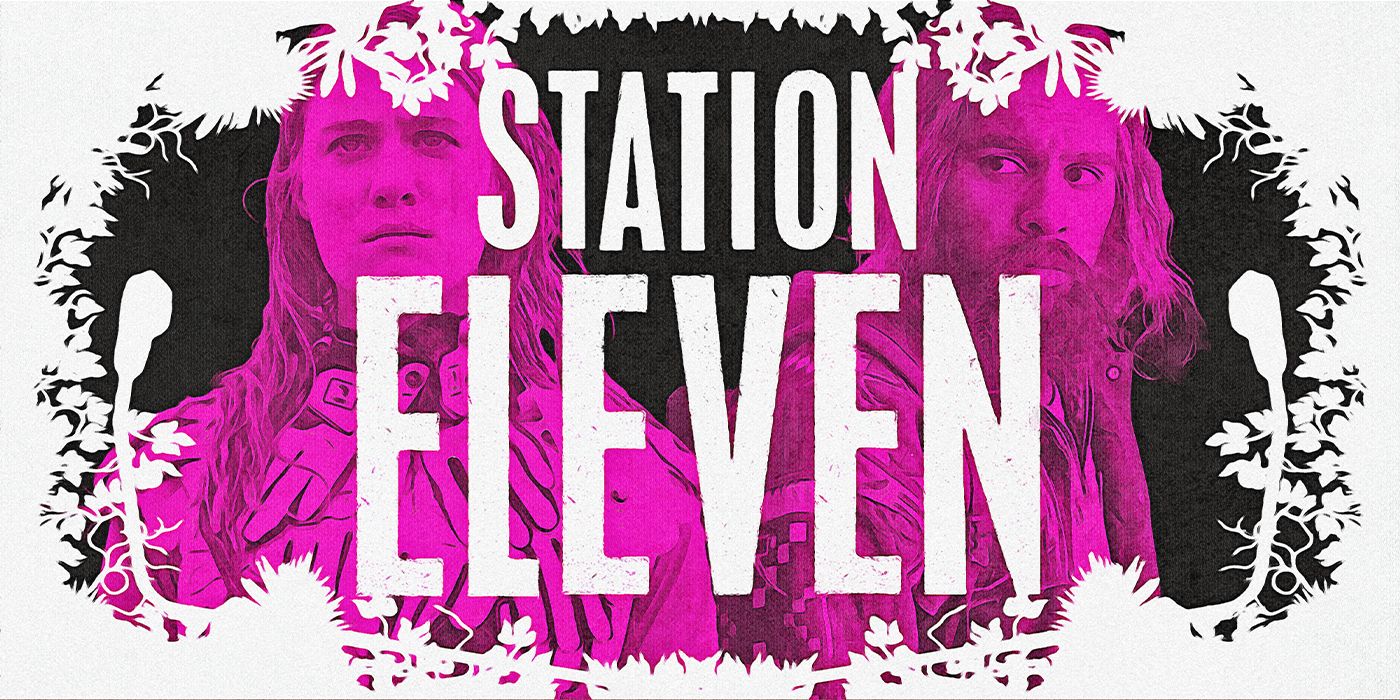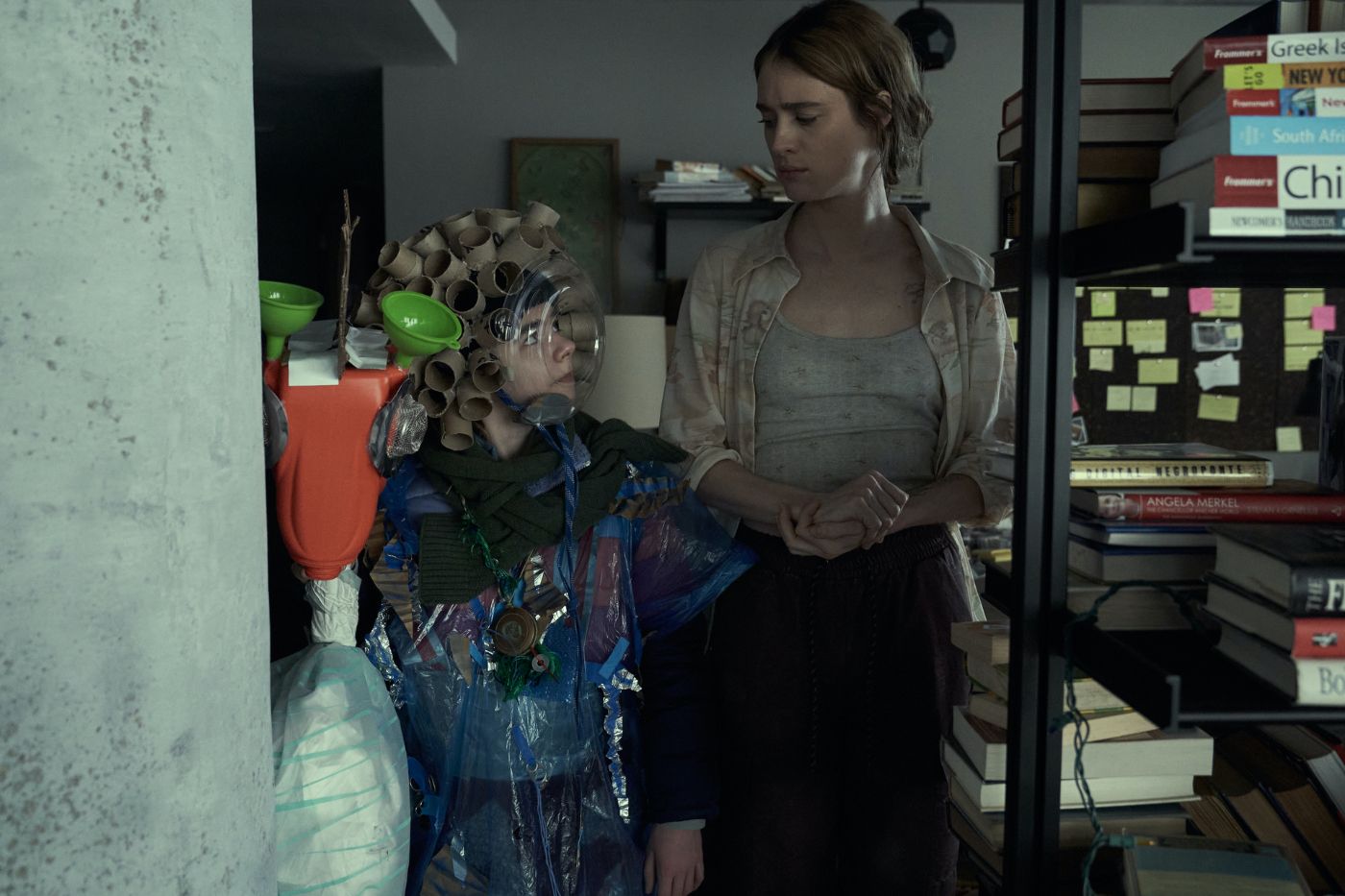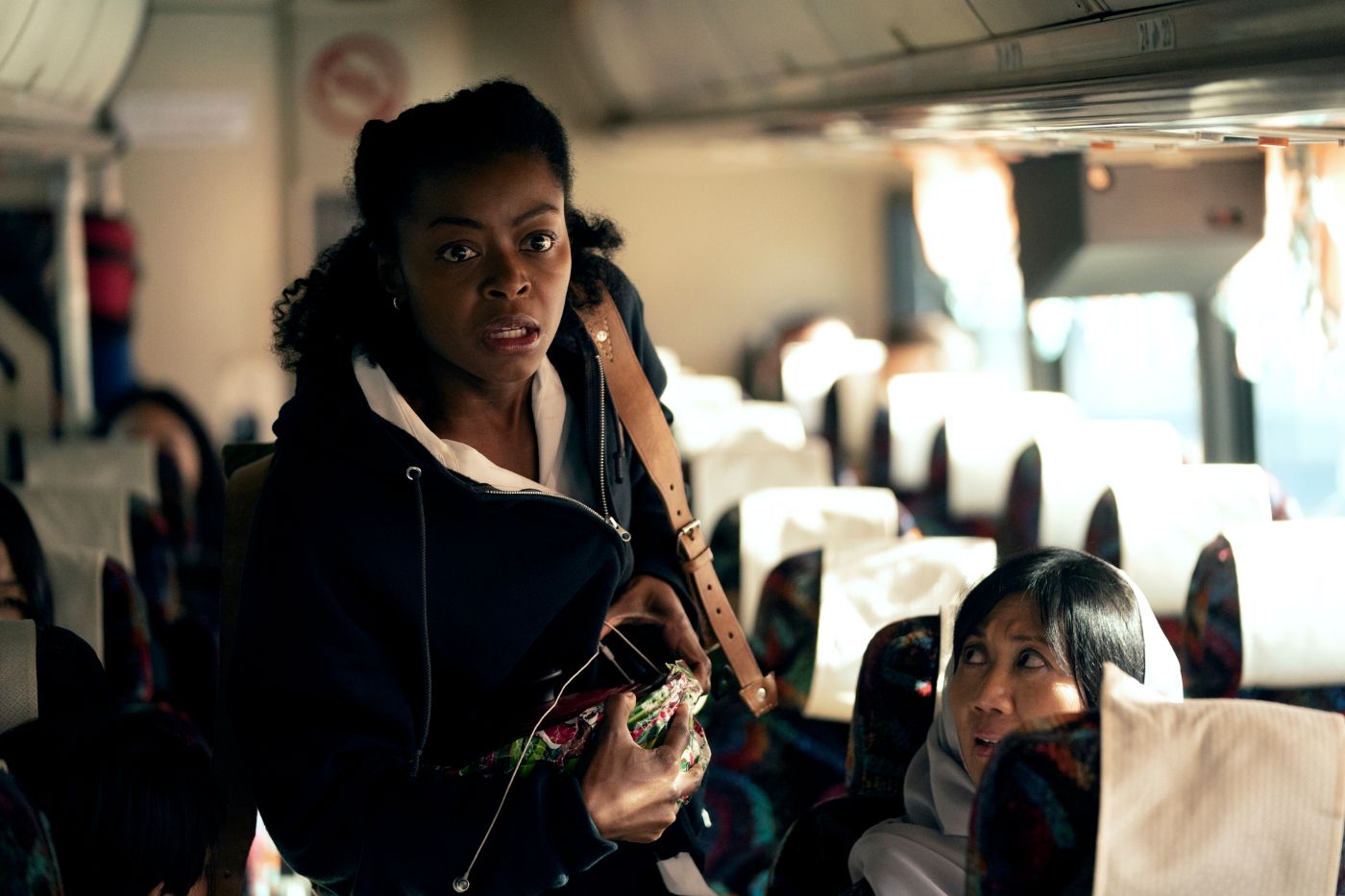Editor’s note: The following contains spoilers for the entirety of Station Eleven.When setting out to adapt a novel into a new work, there will always be a looming force in the background of your story. Oftentimes, this force can doom this new version by making it far too much about the simple recreation of what has already been written before it. Yet, occasionally, an adaptation will chart its own path and create a wholly new narrative. It becomes one that pays homage to the central emotional core while still creating something that is defined not by how closely it abides by the original work, but by how much it doesn’t.
The HBO Max series Station Eleven, adapted from the beloved novel of the same name by Emily St. John Mandel, is one such show that fully embraces the potential of what is possible when you are willing to make radical changes. It has fast become one of the most critically acclaimed shows of not just the network on its own, but of any television show that came out last year. It is a show about a global pandemic that also isn’t constrained by it as it is gorgeous to witness, heartbreaking to experience, yet persistently hopeful in its conclusion. The final episode of the limited series recently concluded, marking the end of an arc that took its own distinct journey and arrived at a conclusion that could not have been more fitting. While it is possible that the show could continue despite being billed as a limited series, it is hard to imagine a more emotional and impactful end than the one we've now already seen.
This ending, like the rest of the story, was far removed from the novel even as it was populated by the same characters in much of the same world. While this may be off-putting to some readers who seek out strictly textual adaptations, it is this willingness to use the text as a launching point to something different that makes it such a standout. Both the series and novel are good in their own distinct ways, packing a loving core amidst the chaos of the world falling apart. They are complementary to each other, even as they diverge significantly.
From the first episode on, the show is clear about its intentions to pursue its own narrative. The most notable is that Jeevan (Himesh Patel) and the young Kirsten (Matilda Lawler) are interlinked from the beginning. In the book, they briefly connect following the death of Arthur Leander (Gael García Bernal) at the play before forever parting ways, with Jeevan going to stay with his brother Frank (Nabhaan Rizwan). In the series, Jeevan takes Kirsten with him to Frank’s apartment where they ride out the first few months of the end of the world.
Already, the creative decisions being made change the entire dynamic from the book and make for a vastly different experience. The time spent in the apartment is given much more focus and time, including in one of the best episodes of the series, “Goodbye My Damaged Home.” It sees a grievously injured older Kirsten (Mackenzie Davis) reflecting back on the last days she spent there, an observer and occasional participant who still remains bound by the inevitable passing of time. She has gained new insights and knowledge about what is coming for her younger self, though is unable to save her. The scenes spent there take on melancholic new meaning when seen through this lens, as Kirsten tries to save her younger self from the inevitable loss that is coming. All the actors in this central dynamic give truly incredible performances, capturing a wide range of emotional highs and lows. A highlight comes when Frank passionately raps his own version of "Excursions" by A Tribe Called Quest. It's a bright spot that is snuffed out in a harsh cut to the perpetually suffocating silence of their continued isolation.
None of that would have been possible had the show not been willing to take big chances. Another example can be found in the journey taken by Miranda (Danielle Deadwyler), the author of the graphic novel that gives the show its name and serves as a connective tissue between many of the characters in their later lives. In another equally transcendent episode, the show's third simply entitled "Hurricane," we see the series expand on the last days of Miranda’s life as she finds herself trapped away from those she loves in a hotel on a business trip. Details not seen in the novel are given new life here, excavating and uncovering more of who Miranda was that led her to this point. She becomes a new character here, linked to the origins of the source material while still getting to take flight.
Not only is Deadwyler’s performance arresting at every moment, leaving you unable to look away from her every move, the material of the show lets her really sit with the character. In the novel, Miranda’s death was quick and fleeting. It was beautiful and tragic in its own way, though the show expands on what it was that she was experiencing in her final moments. The cinematic journey of getting to see regret, sadness, and ultimately acceptance pass over Deadwyler’s face is a profound experience that it would have been a tragedy in itself to not get to let it take hold of you. When the show revisits her later in the final episode, when she is on death’s door, this all pays off even more. As she gives a final monologue and helps to save the last people on the planet that she loves, it is comprehensively earthshattering.
All of these moments are invaluable ones that would have been lost had the series stuck to being entirely faithful to the novel. The changes unlock new horizons for the story that find their own beauty, becoming a unique work that accompanies the novel while still standing apart. There is some softening of the material, the notable one being around how the Prophet (Daniel Zovatto) is given a redemptive arc. We see more of who he is as Tyler, the son of Arthur whose rougher edges are similarly sanded down. This decision never feels cloying or unearned, instead deepening the central compassion felt in both works. It enhances what the novel was hinting at, showing how Tyler might have taken a different path that was more like Kirsten’s had a few things happened differently in his life.
With Kirsten, the connection she has with Jeevan becomes the heart of the story. They end up having to leave Frank, who was killed by a stranger before they could set out from the apartment, and by that point, the two remain all that each other has left in the world. It is therefore devastating when Jeevan, who pretended to be a doctor on the radio, gets seriously injured and is taken to a new group of people who believe he can help them deliver babies. When he returns home to the remote cabin he shared with Kirsten, it is too late, and she is already long gone. The show then plays with our emotions further, showing them at the same Severn City Airport decades later where the distinct climax of the series happens in the form of a play. Yet it seems Jeevan has left, making us fear that they will never get to see each other again.
This makes it all the more cathartic when they do manage to reconnect one last time before literally diverging in a wood, having both found different lives. Jeevan is now an actual doctor with a family, and Kirsten is with The Traveling Symphony, but they get to share one last conversation about their respective lives, a heartfelt reconnection that the series gets to have as something that is all its own. It speaks to the importance of telling your own story and how it can sustain you to carry on.
That is, after all, the motto of The Traveling Symphony that has been itself lifted from Star Trek. “Survival is insufficient” speaks to our need to tell new stories, itself a fresh iteration of an old story. That is, in many ways, the whole point of the show and fits right in with the new direction it took as compared to the novel. As New Yorker writer Katy Waldman astutely pointed out, the show itself is "obsessed with adaptation" and "most of the art featured on the series doesn’t exist in its original form." Instead, Waldman argues, “it comes filtered through individuals, who carry and change it in time—shaping, recontextualizing, extracting what they need.” To take that further, the manner in which the show remakes its origin, with every episode arriving, at a new destination, is a route by which other adaptations could feel more honest and individual.
When thinking of the best adaptations of their source material, there are certainly ones that are memorable for how closely they recreated the text. Yet there is something to be admired in how boldly a show like Station Eleven upends what you expect and still shakes loose something that speaks to the very point of the book. It is a story about stories and how we rebuild ourselves through the different approaches we take to them, making it all the more impactful to see how it does just that with its own story. The new ways by which Station Eleven addresses the original text not only best serve the visual medium of television, drawing us into a sensory experience that is far different from the novel, but align with the central theme of how life can transform. Something different yet similar, close to home yet far away; a testament to how, when the formations of our world evolve and change, so too will the stories we tell ourselves.



